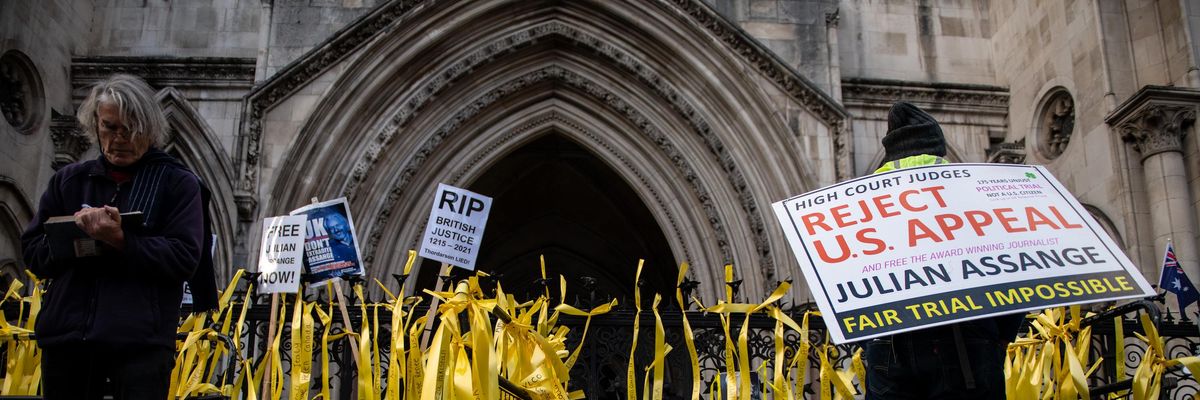The U.K. Supreme Court on Monday denied WikiLeaks founder Julian Assange's request to appeal an earlier decision permitting his extradition to the United States, where he faces espionage charges and up to 175 years in prison for publishing classified documents that exposed war crimes.
"The application does not raise an arguable point of law," the court declared.
Assange's supporters say that the case now goes before U.K. Home Secretary Priti Patel to authorize the extradition.
The case has sparked global concern from press freedom and human rights groups who warn that prosecution of Assange would have far-reaching impacts on journalists and publishers who dare to challenge powerful governments by exposing their most closely-guarded secrets.
In a statement, Assange's solicitors lamented that the request for appeal was denied, saying that "the court had found that there was a real risk of prohibited treatment in the event of his onward extradition."
The legal team also said that they would be able to submit documents to Patel's office for the next four weeks ahead of her decision and that Assange could still appeal on other grounds.
The high court ruled in December that Assange can be extradited, overturning an earlier ruling by the Westminster Magistrates' Court that found extradition would endanger Assange's life.
In a January statement, Committee to Protect Journalists deputy executive director Robert Mahoney warned that "the prosecution of the WikiLeaks founder in the United States would set a deeply harmful legal precedent that would allow the prosecution of reporters for news gathering activities and must be stopped."
Mahoney, like other defenders of free speech and journalism, additionally called on the U.S. Justice Department to stop the extradition proceedings and drop its charges against Assange.
Responding to Monday's verdict, Amnesty International deputy research director for Europe Julia Hall said the decision represents "a blow to Julian Assange and to justice."
She also rejected as insufficient claims by U.S. officials that Assange's wellbeing would be safeguarded in American custody.
"The ban on torture and other ill-treatment is absolute and empty promises of fair treatment such as those offered by the USA in the Assange case threaten to profoundly undermine that international prohibition," she said.
"The refusal is also bad news for press freedom," said Hall, "since it leaves intact the nefarious route the U.S. has employed to attempt to prosecute publishers for espionage. Demanding that states like the U.K. extradite people for publishing classified information that is in the public interest sets a dangerous precedent and must be rejected. The U.S. should immediately drop the charges against Julian Assange."
